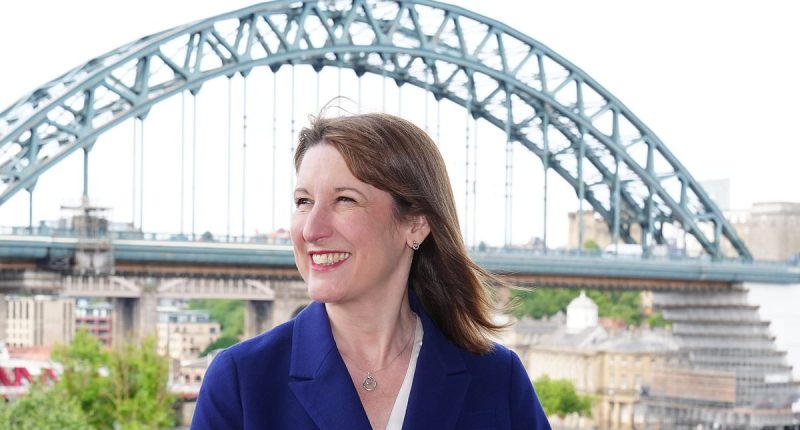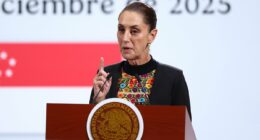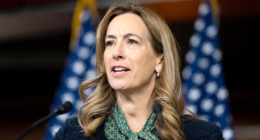Share this @internewscast.com
Britons are bracing themselves for tax rises later this year as they fear Rachel Reeves’ Spending Review cash splash is otherwise unaffordable, anew poll suggests.
Two thirds of voters (67 per cent) believe that the Chancellor’s plans set out last week mean she will either hit them in the pocket or increase borrowing.
And the YouGov poll shows that fewer than one-in-eight (12 per cent) believe that the plans, which will see billions more thrown at the NHS and nuclear power, are affordable with things as they are.
The Treasury is already said to be drawing up tax rise options for the Autumn as economists warn Ms Reeves’ plans no longer add up.
Dividends and bank profits are among the areas being mooted for drumming up revenue to balance the books.
The Chancellor declined to rule out tax rises again yesterday, amid fears that the Israel-Iran conflict could deal another hammer blow to the prospects for growth.
The poll found that almost half of voters (49 per cent) believe Ms Reeves is doing a bad job.
However her rating has improved from -41 to -33 compared to after the Spring Statement in March.

The Treasury is already said to be drawing up tax rise options for the Autumn as economists warn Ms Reeves’ plans no longer add up.
The proportion of voters who feel that the economy will get worse over the next year also fell from 65 per cent to 54 per cent.
Voters backed more money for the NHS, school building repairs and building more social housing.
But in a blow to Ed Miliband only half say nuclear power is a priority, and fewer want money spend on AI, science and technology or building more railways.
Ms Reeves insists her spending plans for the next three years are ‘fully’ funded. But critics have claimed the stalling economy, together with pressures on defence and a Labour revolt on benefits mean she is writing cheques with ‘fantasy’ money.
The issues could crystalise at the Budget in the Autumn, when many believe the independent OBR will downgrade growth forecasts. GDP shrank by 0.3 per cent in April, although it has grown over the past quarter.
The IFS think-tank has warned that tax rises look ‘almost inevitable’, ridiculing the government’s claim to have identified billions of pounds in ‘efficiencies’ during a ‘zero-based’ overhaul of costs.
According to the Sunday Times, a list of potential tax increases drawn up in the Treasury includes raising the bank surcharge.
That is a levy on profits on top of the 25 per cent corporation tax rate. It was cut from 8 per cent to 3 per cent under the Tories, with suggestions it could return to 5 or 6 per cent.

The poll found that almost half of voters (49 per cent) believe Ms Reeves is doing a bad job. However her rating has improved from -41 to -33 compared to after the Spring Statement in March.
Another apparent option is increasing tax on dividends, often taken by company directors instead of wages.
Currently the highest rate stands at 39 per cent – lower than the 45 per cent top rate of income tax.
Removing a tax-free £500 dividend allowance would bring in hundreds of millions of pounds for the Treasury, but could punish small investors.
Challenged on the BBC’s Sunday with Laura Kuenssberg that ‘lots of experts’ were already saying she would need to put taxes up, Ms Reeves said: ‘Well we’re a strong economy with strong foundations and we have weathered other shocks…
‘We are still the only country to have secured a deal with the United States, and in addition we’ve got trade deals with India and the EU, so we are working hard as a government to strengthen our economy, to grow our economy in a way that creates good jobs here in Britain, paying decent wages, to put more money in peoples’ pockets.’
Options are always drawn up within the Treasury ahead of fiscal events, and not necessarily implemented.








